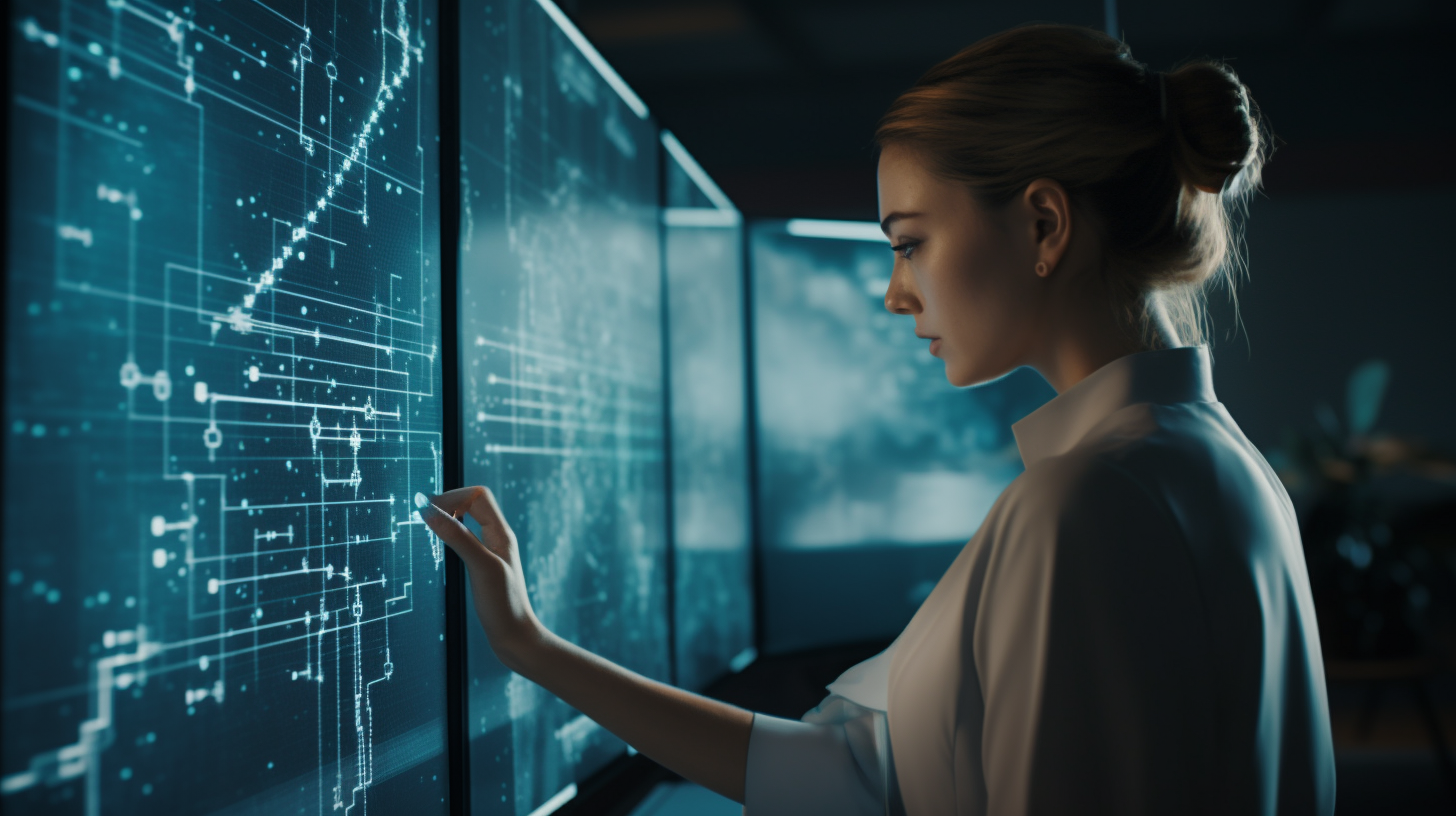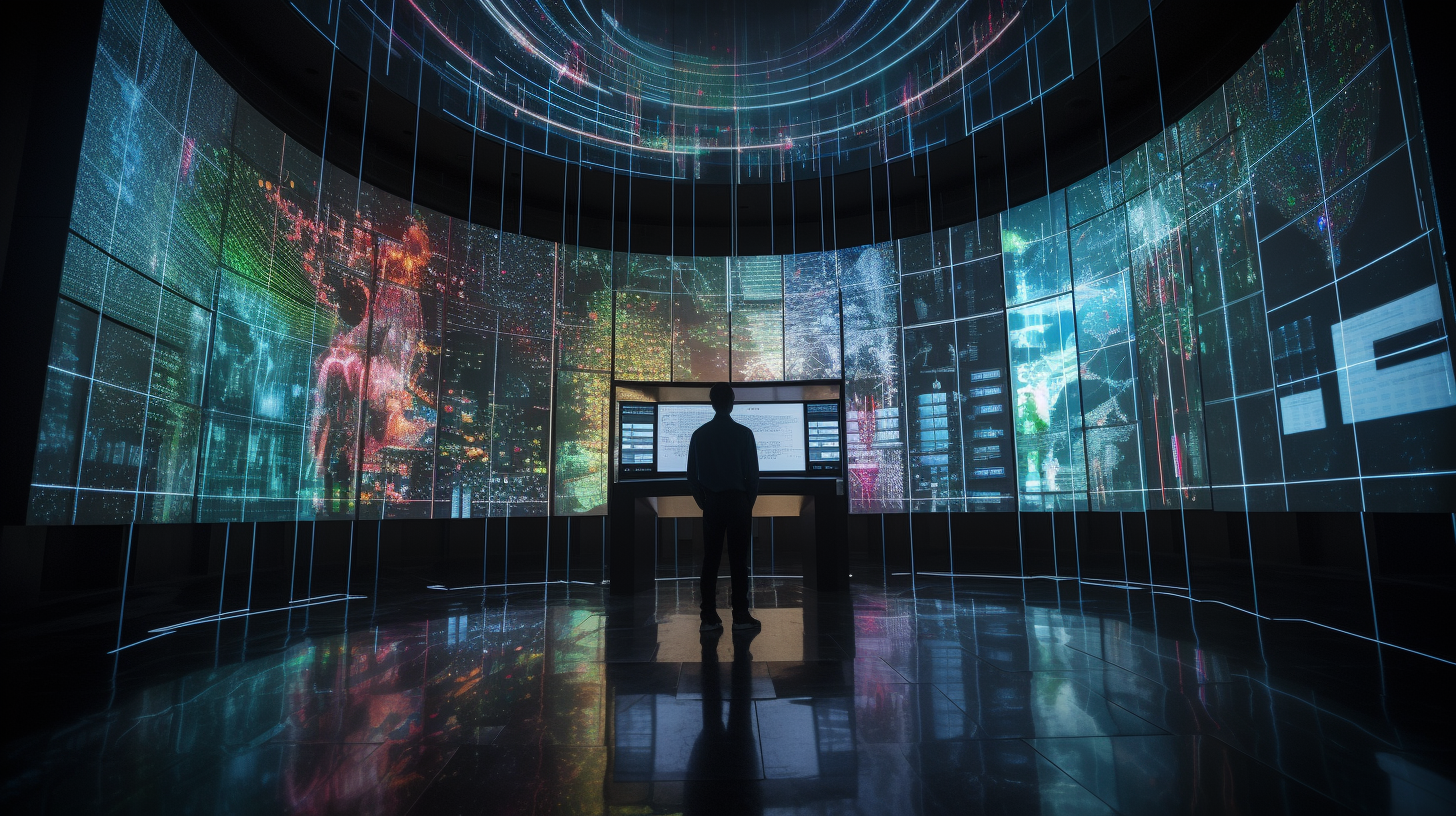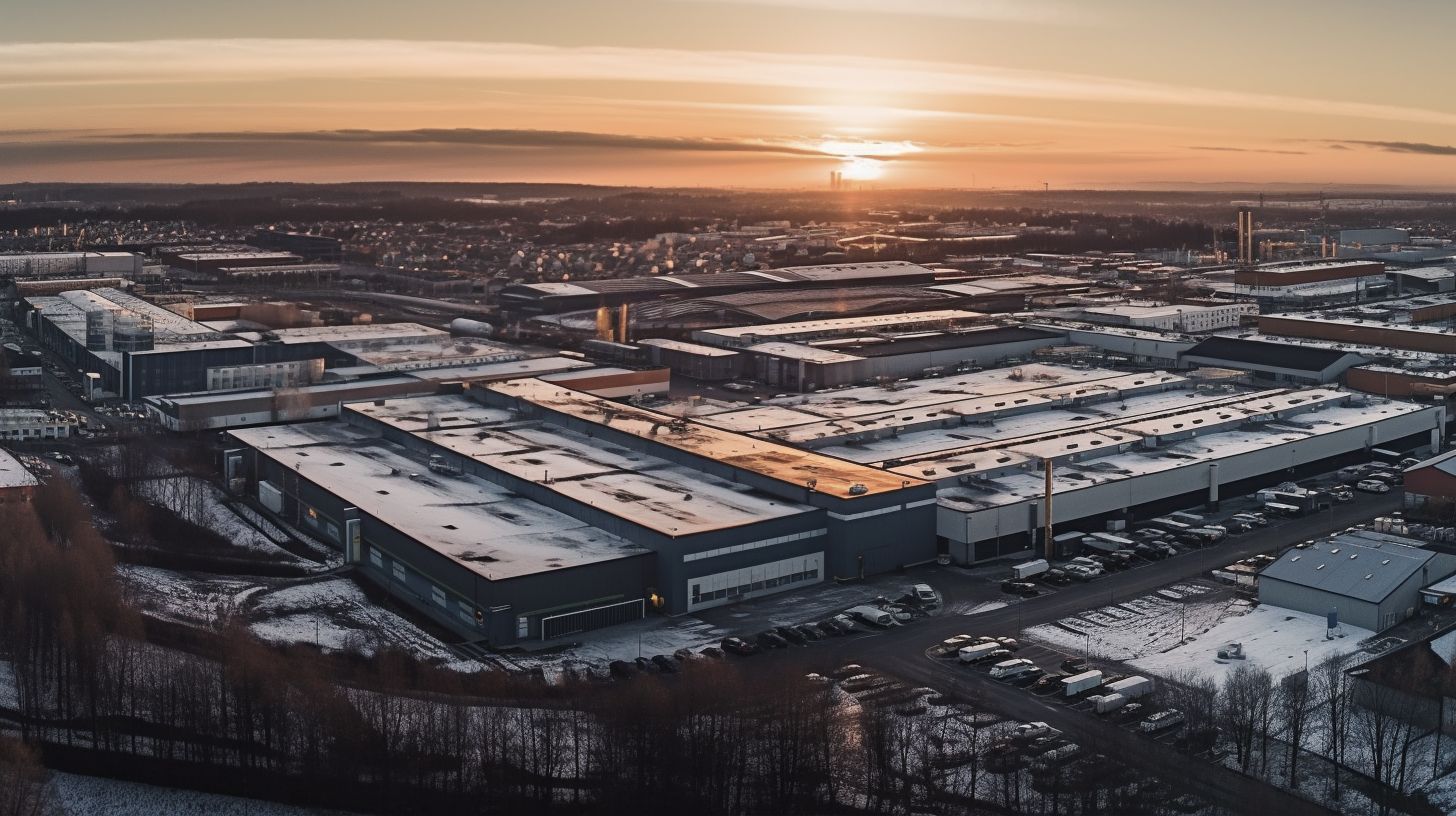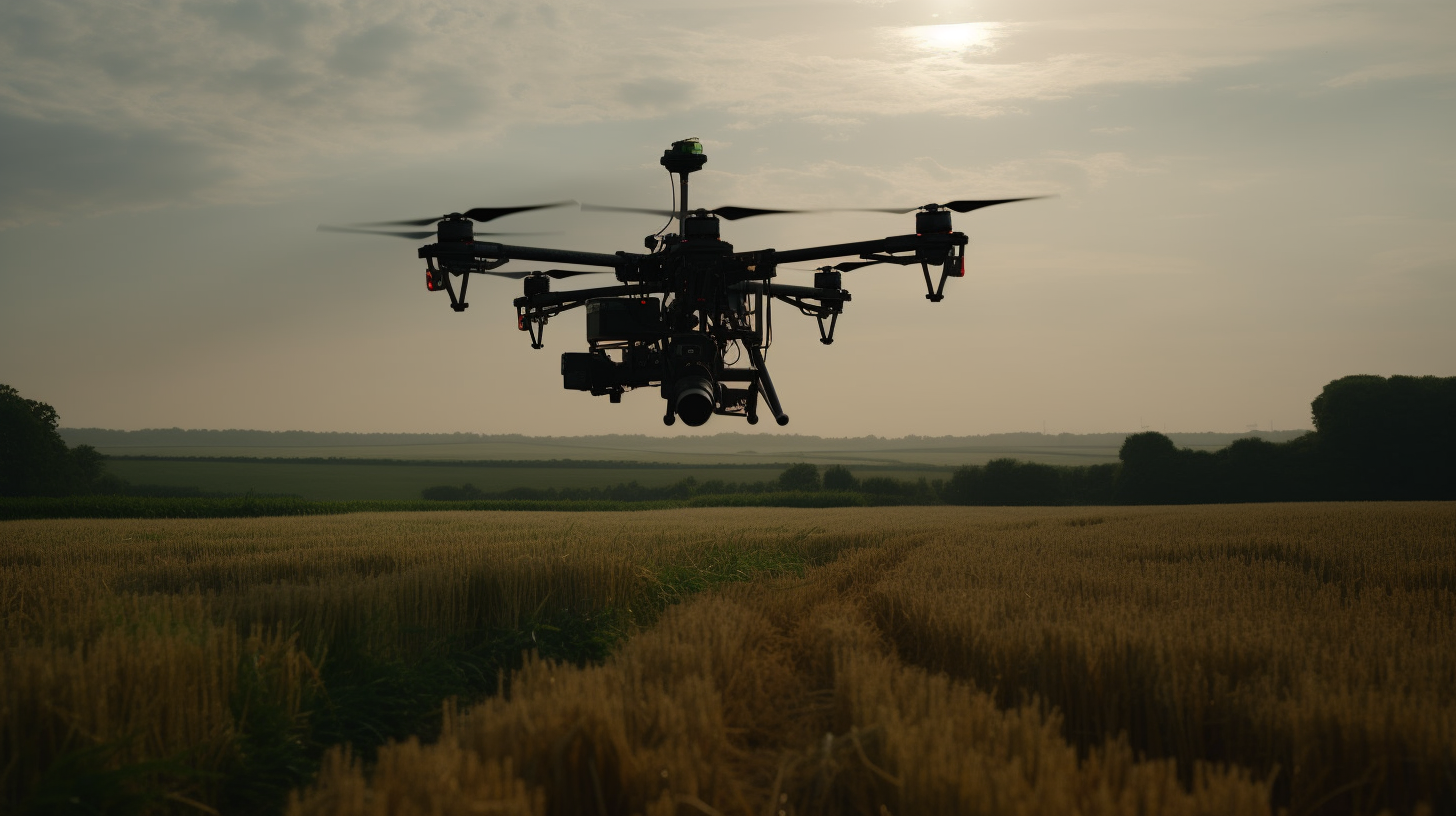AI Ascendancy:
AI is transforming the German economy and has a profound impact on M&A

In this increasingly interconnected world, where technological improvements redefine our daily experiences, Artificial Intelligence (AI) stands out as a transformative force that's constantly pushing the boundaries of what is possible. Akin to the influential roles played by the steam engine during the Industrial Revolution, or the advent of the internet in the '90s, AI has become a modern-day fulcrum of change, engendering profound implications on business dynamics and economic structures.
AI has a profound impact on the domain of Mergers and Acquisitions (M&A), with Germany, Europe's economic powerhouse, leading the charge in this transformative wave.
AI's Dominance in the German Economy
Germany’s economic landscape of small-to-medium sized companies is not merely a testament to its well-established prowess in engineering and manufacturing but also a glimpse into the nation's AI-driven future. Increasingly, businesses across sectors such as automotive, healthcare, and logistics are leveraging AI to optimize processes, trim operational costs, and deliver superior service offerings. This integration of AI has not only enhanced productivity but has also sparked a revolution, heralding the emergence of a new breed of AI-driven startups. These startups, riding on the waves of innovation, are not just bolstering the country's economic growth but are also adding a new dimension to the competitive landscape.
But the embrace of AI is not confined to these sectors alone. As Albert Einstein once said, "The measure of intelligence is the ability to change," and the German economy is doing just that. From finance to retail, sectors across the spectrum are welcoming AI, using it to drive change and build smarter, more competitive businesses. Thus, AI is no longer a novelty, but a crucial driver in the German economic machinery.
AI's Influence on M&A Transactions
This potent fusion of AI and the German economy is not limited to enhancing operational efficiencies or bolstering startups - it extends to the arena of M&A, altering the traditional norms and processes. Today, AI is not just a tool but an ally in making informed decisions about potential acquisitions. By analyzing vast amounts of data in real-time, AI can predict a target company's future performance based on historical data, market trends, and myriad other factors. What does this mean for businesses? Simply put, reduced risks and more strategic, data-driven decisions.
And let's not forget the critical aspect of any M&A deal - due diligence. Traditionally a time-consuming and labor-intensive process, due diligence has received a significant facelift courtesy of AI. Machine learning and natural language processing technologies swiftly sift through heaps of data, identifying potential risks and liabilities at a pace human analysis could never match. The result? More accurate and efficient risk assessments, saving both time and money.
AI's influence extends further, seeping into post-merger integration and regulatory compliance. Picture a newly merged entity, two companies now functioning as one. It's a complex process, rife with challenges. Here, AI steps in, providing insights to integrate operations seamlessly, identify redundancies, and align corporate cultures. Additionally, in a world where regulations change at a dizzying pace, AI can ensure compliance throughout the deal process, a feature that not only saves businesses from penalties but also protects their reputations.

The New Rules of the M&A Game
In this new era, where AI has the potential to dictate the rules of the M&A game, companies need to reconsider their approach towards acquisitions. How can a potential acquisition's AI capabilities be accurately evaluated? As it turns out, AI assets, from algorithms to data and talent, have become key valuation considerations. In other words, businesses aren't just acquiring assets; they're acquiring AI potential. Consequently, this shift calls for a reevaluation of traditional valuation models, demanding a more nuanced understanding of AI's tangible and intangible contributions.
But as we journey through this exciting landscape, we must not lose sight of certain challenges. With the power of AI comes the responsibility to safeguard data privacy and uphold ethical standards, issues of paramount importance in the M&A context. So, as AI takes center stage, how can companies ensure they navigate these complex issues effectively, maintaining the delicate balance between innovation and ethical compliance?
Furthermore, in this volatile global economy, AI is not just a tool for growth, but a catalyst for resilience, particularly in M&A operations. AI's predictive capabilities can empower companies to anticipate market trends and strategic shifts, preparing them for any potential shocks. It's akin to having a crystal ball, one that can't predict the future with certainty, but can certainly provide a more informed guess. But how ready are we to trust these AI predictions and incorporate them into our strategic decisions?
As we delve into the intriguing narrative of AI's transformative impact on the German economy and the M&A landscape, we find ourselves not at the end, but at the beginning of a new chapter. A chapter that promises unprecedented growth, innovation, and challenges. The fusion of AI and M&A presents businesses with immense opportunities, but also calls for new capabilities, strategies, and frameworks.
In this dynamic landscape, businesses and policymakers have a shared responsibility - to navigate the opportunities and challenges of the AI revolution, while ensuring the broad-based welfare of society. As we stand on the brink of this new era, the question remains: How can we harness the power of AI to fuel the M&A landscape, stimulate economic growth, and navigate the challenges that come with it?
The answer to this question will define the future of the German economy, and indeed, the global economic paradigm. It's an intriguing puzzle, a call to action for every stakeholder in the ecosystem. This is our collective journey towards the future - a future where AI doesn't just facilitate M&A but reinvents it. Let us come together to shape this exciting narrative and chart the contours of this bold, new world.


